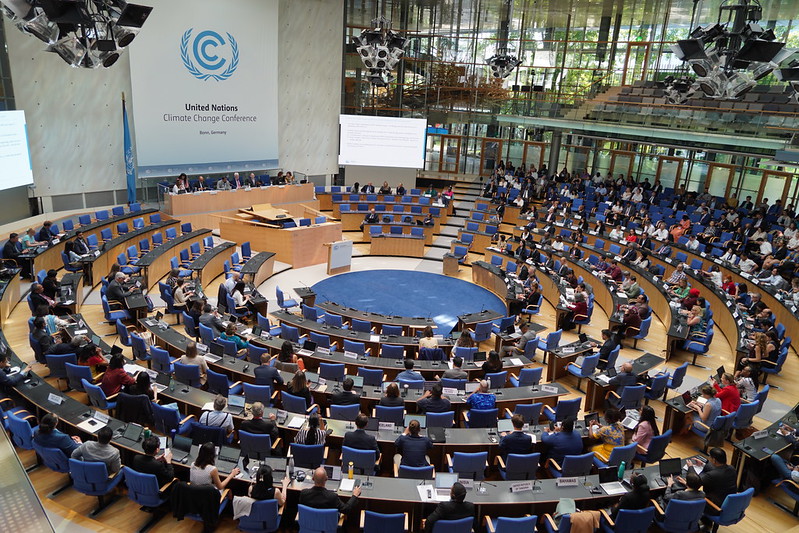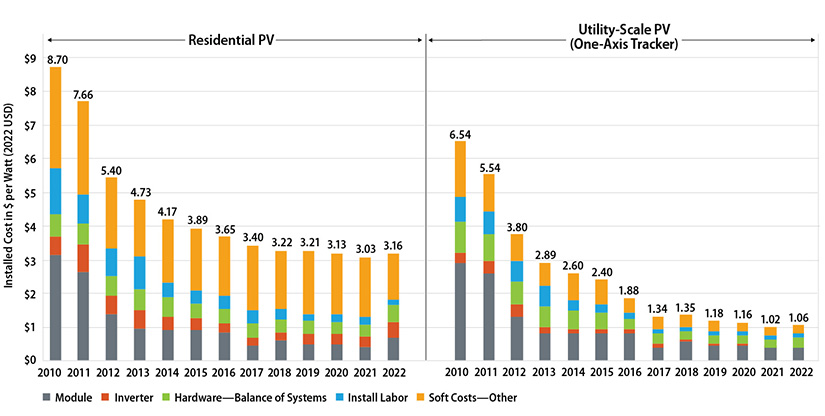
Over the last six months I’ve been reading practically anything about global climate negotiations I can get my digital hands on, whether it be news articles, scholarly journals, or blogs. I’ve surveyed past attendees, interviewed about a dozen experts, and I’m on track to interview at least another dozen more before I head off to Dubai with my media credentials to attend the U.N. climate negotiations meeting.
I think the way news organizations approach Dubai’s climate discussions is broken – primarily that politics needs to be covered more, because we’re now talking about money, not morality. I’m heading to Dubai to learn as much as I can about the negotiations, and maybe create an organization that can fix that problem. In the meantime, here’s a few of the things I’ve learned in the last six months:
- The key issue is keeping warming below 1.5 degrees Centigrade. – This is the global average number of degrees above pre-industrial levels. Above that level scientists estimate the damage from warming will be irreversible and significant. That means lots of sea level rise, climatic regions changing (say goodbye to lots of French wines), massive droughts, hurricanes, and floods on the regular, and tens of thousands of species die-offs.
- Nobody’s doing anything right. – Even the Scandanavians haven’t set adequate targets to keep the world from staying below 1.5C, according to Climate Action Tracker. Some countries are doing better than others, but everyone has a lot farther to go.
- Fixing climate change is far from a lost cause. – It’s been compared to the Apollo moon shot, except in this case adequate green technology already exists, we just need to deploy it. So ultimately…
- It’s not about ability, it’s about money. – Multiple studies have rolled in that show that we need to spend around $5 trillion a year more in private investment to adequately convert to green tech. Then, another $2 billion a year in government spending to deal with climate adaptation and helping developing countries convert to green economies. That sounds like a lot, but it’s really just 6% of the global GDP. We can do this.
- The usual suspects – fossil fuel companies – are still pushing back hard. – Not so long ago fossil fuel companies denied climate change. Now they just suggest things aren’t so bad, and we can just capture and pump carbon emissions underground to make up for everything we’re spewing in the air. That sounds good, except we need to do more than capture everything we’re putting out, we need to capture everything we already put out, and the fossil fuel companies aren’t helping us hit that target anytime soon. It’s all about delay, obfuscation, and confusion so they can keep making money pulling coal, oil, and gas out of the ground.

- The technology to fix things is rapidly getting better. – Check out this graph above of how fast the cost of solar power is dropping. It’s cheaper than coal now, and soon everyone will be able to afford their own solar panels. The same thing is happening with wind, geothermal, and batteries. If we keep investing in green, the speed at which tech improves will only accelerate.
- Most of the world agrees we need to fix climate change now, it’s largely the biggest emitters that are pushing back. – Upton Sinclair said, “It is difficult to get a man to understand something when his salary depends upon his not understanding it,” and that pretty much depicts the position of the world’s largest emitters and oil producers: The U.S., Europe, India, China, and the OPEC nations. Negotiating groups like the Alliance of Small Island States and the Coalition of Rainforest Nations are all for strict emissions limits because their future depends on it. Other groups like the Bolivarian Alliance (a collection of Central and South American countries) and African Nations have banded together to push for stricter emissions limits and to call for increased climate investment. Together, these countries make for the majority of the global population.
- Smaller countries actually have significant influence on the negotiations’ outcome. – While the biggest emitters are the biggest economies with the biggest checkbooks, developing countries have leverage in that they provide important raw materials to the biggest emitters, among other factors. When they band together, their diplomatic and economic pressure can be significant. For instance, one group that represents 135 developing countries (the G77, the numbers don’t match, I know) is pushing a debt restructuring and green tech investment program that after two years of pushing seems to be getting the attention of the biggest emitters. That program, the Bridgetown Initiative, was developed by and is led by tiny Barbados.
- UN Climate Negotiations do not work at all like American politics. – One big difference is how advocates for climate (and fossil fuels) are so clearly part of the negotiating process. In the West, lobbyists prefer to stay somewhat behind the scenes, while climate advocates are very open about naming names. Fossil groups are less so, but they are very clear present. But also so much of the process depends on the wallets of only a few groups: The U.S., the E.U., and China. Without the support of one or more of those groups, a proposal twists in the wind. But China, which still considers itself a developing nation, often backs developing nation ideas, which helps to skewer the U.S. and E.U. in many negotiations. On many occasions, U.N. Negotiations are efforts of hundreds of Lilliputians trying to drag down the goliath U.S. to their viewpoint.
- My big discovery: There is a distaste for the realpolitik of politics. – Basically, everyone knows there’s politics involved, but so much of the “U.N. Spirit” is to view issues through a lens of morality, and from what I can see, the level at which advocacy groups have pervaded the proceedings of climate negotiations, pretty much everything in the climate space is talked about in morality terms as well – except for the negotiators themselves. The country leaders engaging in negotiations have real deliverables they need to bring home, but oddly this is not the first thing people talk about at the U.N. It’s a big contrast to American or Western democracies, where we openly discuss how such-and-such legislator or politician has certain party obligations or things their home district requires of them. I have found this is usually not the primary topic among negotiations folks.
- The writ of climate negotiations is huge. – Negotiations used to be just about the science of climate or setting internal national emissions limits. Now that we know we’re running out of time, the scope of negotiations has broadened. The agreed upon boundaries of the negotiations are essentially unlimited, so long as the 198 countries around the table agree to it. Today, discussions are circling around hundreds of billions of dollars of debt relief, economic stimulus for green tech development, and even how to manage carbon credits.
- Negotiations meetings have become a giant circus with thousands of attendees. Last year’s meeting had over 35,000 registered attendees, with tens of thousands more attending side meetings. Judging by the size of the venue (Dubai’s Expo City), they’re expecting a similar attendance this year. The center of the conference are negotiating meetings in areas restricted to registered attendees, but outside of that is an area twice the size set for hundreds of side meetings, events, and demonstrations. I suppose the idea is to impact the negotiations with volume – of people and noise.
I’ve got my media credentials and visa for the negotiations in Dubai from November 30 to December 12. Become a part of my project and get daily updates while I’m on site by backing my Kickstarter. Your support would be tremendously appreciated!